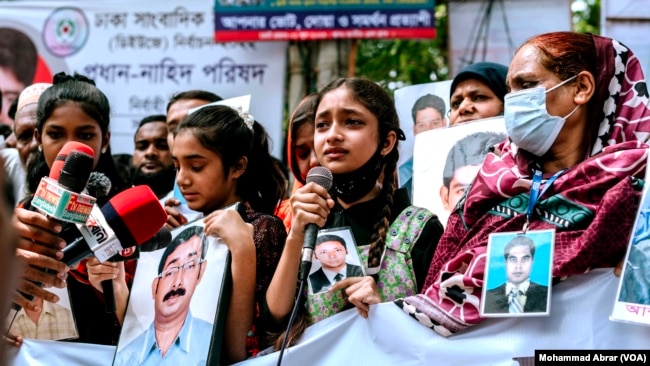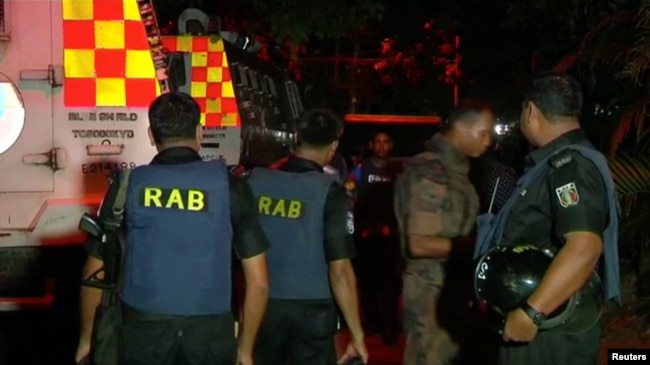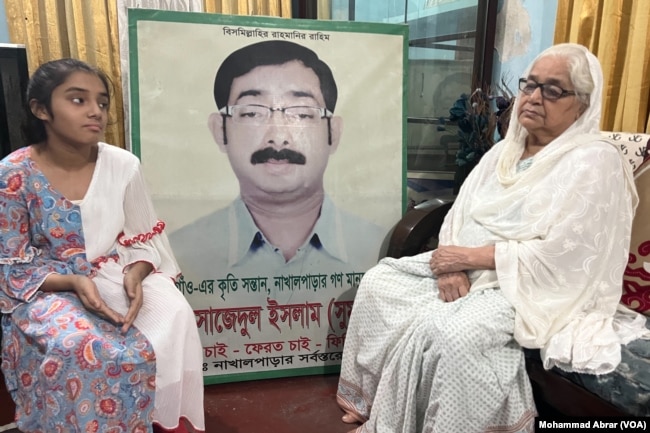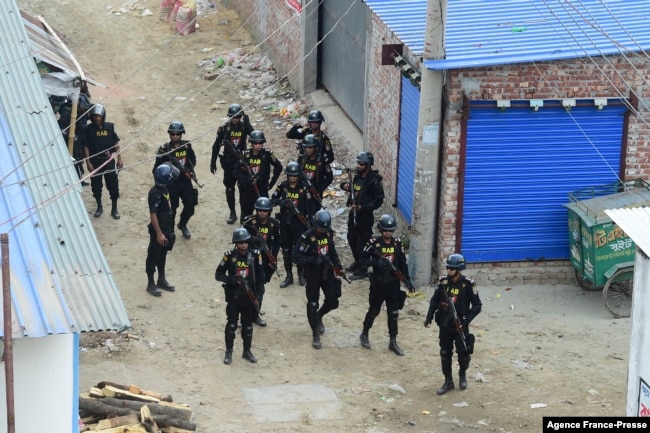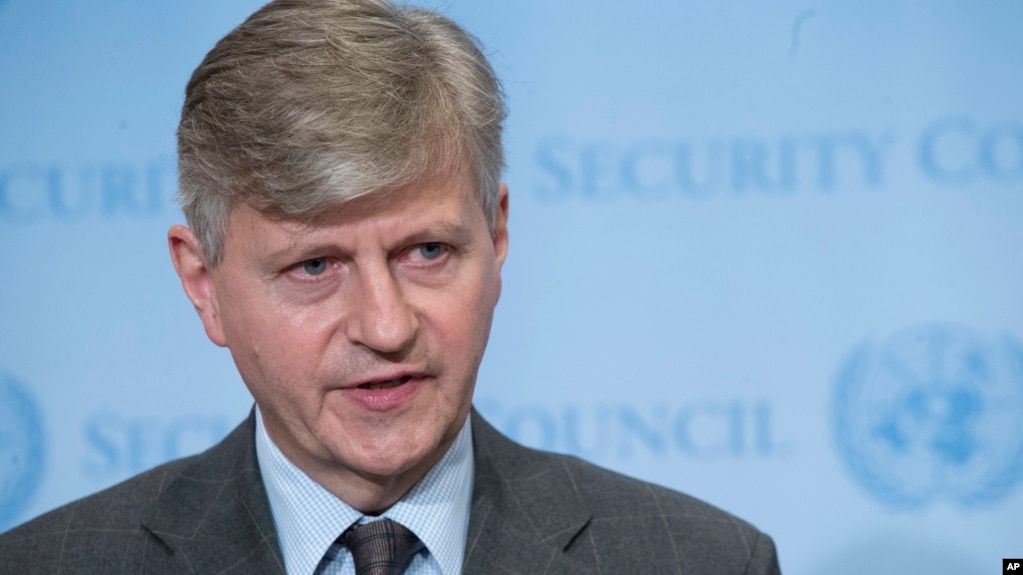
Lacroix is set to visit Bangladesh on June 25-26 at the invitation of the country’s Ministry of Foreign Affairs, as a state guest. In Dhaka, he will attend a conference organized by the ministry.
Bruno Stagno Ugarte, the chief advocacy officer at HRW, said the security forces of Bangladesh — “in particular, the Rapid Action Battalion”— have long been involved in serious human rights violations.
“Lacroix should emphasize that if Bangladesh is to maintain its role as the top contributor of peacekeeping troops, it should appropriately apply the U.N. human rights screening policy, which requires governments, alongside the U.N. to ensure their nationals serving with the U.N. have not violated human rights laws,” Ugarte said in a statement, which was released Monday.
Bangladesh is one of the largest contributors to U.N. peacekeeping missions. Currently, more than 6,000 personnel from Bangladesh’s armed forces and police — including the Rapid Action Battalion, or RAB, a unit made up of army and police officials — are deployed in U.N. peacekeeping missions across different countries.
Meenakshi Ganguly, south Asia director of HRW, said there is a great risk that troops responsible for grave human rights violations in Bangladesh would be rewarded with a U.N. deployment.
“Mr. Lacroix should publicly voice concerns to ensure there is adequate screening, particularly if anyone has been part of RAB,” Ganguly told VOA.
While the authorities in Bangladesh deny that government forces were behind any human rights abuse, in December 2021, Washington imposed human rights-related sanctions on the RAB and six of its former and then-serving officers, saying they were responsible for hundreds of enforced disappearances and extrajudicial killings.
Faulty screening policy
In Monday’s HRW statement, chief advocacy officer Ugarte said the current screening policy of Bangladeshi personnel fails to ensure that Bangladeshi troops that have been involved in rights violations at home are not deployed with U.N. missions abroad.
“In Bangladesh, systematic human rights screening by the U.N. is applied only at higher ranks and otherwise left to the National Human Rights Commission, which has limited purview over security forces. Bangladesh’s weak enforcement of this policy reinforces a message that grave rights violations will not preclude one from service under the U.N. flag, presenting a moral hazard for the U.N.,” he said.
VOA reached out to the legal and media wing director of RAB, Khandaker al-Moin, seeking his comment on the issue but has not received a response. VOA also contacted via email the home ministry of Bangladesh. The ministry has not responded to VOA, either.
While reviewing the human rights record of Bangladesh, in 2019, the Committee against Torture, a U.N. human rights body, said in a statement it was “concerned about reports that personnel that have served with the Rapid Action Battalion have frequently been deployed for service with United Nations peace missions.”
The committee also recommended an independent vetting procedure, “to ensure that no person or unit implicated in the commission of torture, extrajudicial killing, disappearances or other serious human rights violations is selected for service.”
Referring to the statement of the committee, HRW’s Ugarte said, “The U.N. should require Bangladeshi officers to disclose previous deployments with RAB, then automatically bar anyone affiliated with RAB from U.N. peacekeeping.”
When Lacroix visits Bangladesh, he “should publicly commit to an enhanced human rights screening that addresses well-documented abuses by Bangladesh security forces, the government’s failure to hold those responsible to account, and the threat they pose to the integrity of U.N. peacekeeping worldwide,” Ugarte added.
Rights groups’ support
Several other rights groups have supported Ugarte on the issue.
Lacroix’s visit to Bangladesh is “potentially extremely problematic in its timing” ahead of a crucial election in the country, Angelita Baeyens, vice president of international advocacy & litigation at Robert F. Kennedy Human Rights (RFKHR) said.
The general election is to be held in Bangladesh at the end of this year. The last general election in the country in 2018 was marred by widespread allegations of rigging by Prime Minister Sheikh Hasina’s ruling Awami League party.
“Such a move could be misrepresented as a sign of complete trust by the U.N. of Bangladeshi security forces unless Mr. Lacroix both publicly and unequivocally states his concern over the continuing abuses by security forces in the country,” Baeyens told VOA.
Hong Kong-based Bangladeshi rights activist Mohammad Ashrafuzzaman said Lacroix is visiting Bangladesh as a state guest at a time when the incumbent Sheikh Hasina government is “accused of committing grave human rights violations for almost 15 years with blanket impunity.”
“As a responsible senior official of the U.N., USG (Undersecretary-General) Lacroix has an obligation to respect the International Bill of Human Rights. He should ensure that his U.N. portfolio is not being used by the Sheikh Hasina regime for strengthening her political power and validating the gross human rights violations that Sheikh Hasina’s government is committing for retaining her illegitimate power.
“It’s a shame for the U.N. Peacekeeping Operations when they trust the murderers as peacekeepers.”

